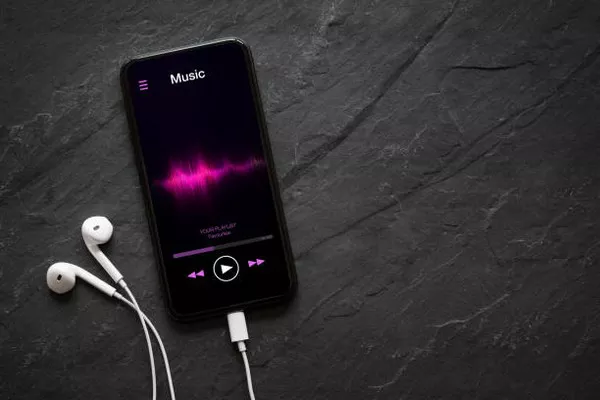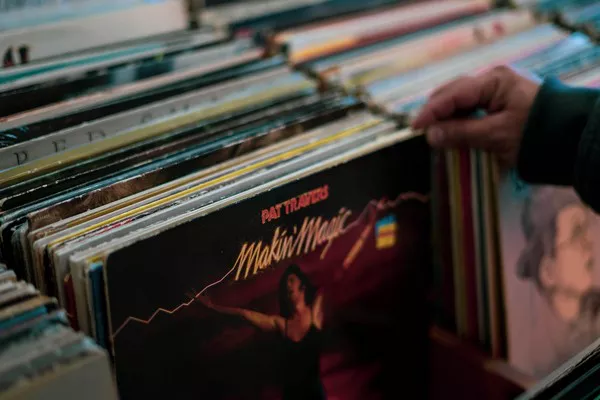Music is often described as a universal language, capable of transcending cultural and linguistic barriers to communicate emotions and stories. At the heart of this language lies music notation, a system of symbols and signs that enable musicians to translate their creative ideas into tangible sound. In this article, we will explore the profound significance of learning music notation, emphasizing its role as the cornerstone of musical education and communication. Whether you are a budding musician, a dedicated music enthusiast, or simply curious about the inner workings of music, understanding the importance of music notation is essential.
The Foundation of Musical Literacy
What is the importance in learning music notation? To answer this question, we must first recognize that music notation serves as the foundation of musical literacy. Just as the alphabet is the fundamental building block of written language, music notation provides musicians with the tools they need to read, write, and communicate music effectively. Without this essential knowledge, musicians would be limited to oral traditions and memorization, severely restricting the depth and breadth of their musical expression.
Imagine a world where writers and readers could only communicate through spoken words, and the written word did not exist. Similarly, in the absence of music notation, musicians would be deprived of the ability to share their compositions, collaborate across time and space, or access the vast repertoire of musical works from various cultures and historical periods. Music notation is, in essence, the written language of music, making it possible to preserve and transmit musical ideas with precision and clarity.
Preserving Musical Heritage
One of the most remarkable aspects of music notation is its role in preserving our musical heritage. Throughout history, composers have used notation to capture their creative visions in a tangible form. From the exquisite manuscripts of Johann Sebastian Bach to the handwritten scores of Ludwig van Beethoven, these notated compositions are treasures that have survived the test of time.
Learning music notation is not merely about understanding the symbols and markings on paper; it is about gaining access to a rich tapestry of musical traditions and experiences. By studying and interpreting the notated works of the past, musicians can connect with the artistic aspirations, emotions, and innovations of those who came before them. This historical continuum allows musicians to evolve and build upon the foundations laid by their predecessors, fostering a dynamic and ever-expanding musical culture.
Unlocking Creativity and Artistic Expression
What is the importance in learning music notation for aspiring musicians and composers? For them, music notation serves as a powerful tool for unlocking creativity and realizing artistic expression. While some may argue that creativity knows no bounds and that notation can be a restrictive framework, the opposite is true. Music notation provides a structured canvas on which musicians can paint their musical ideas with precision and clarity.
For composers, music notation is akin to a sculptor’s chisel or a painter’s brush. It allows them to sculpt melodies, harmonies, and rhythms with meticulous detail, ensuring that their compositions are faithfully interpreted by performers. This level of precision empowers composers to bring their musical visions to life, even when working with large ensembles or complex arrangements.
For performers, music notation acts as a roadmap, guiding them through the intricacies of a piece. It enables them to convey the composer’s intentions faithfully while adding their own interpretive nuances. Without notation, the transmission of these musical ideas would rely solely on memory and oral tradition, leading to a loss of fidelity and individual expression.
Fostering Effective Communication
The importance of learning music notation extends beyond the realms of composition and performance. It plays a pivotal role in facilitating effective communication among musicians. In collaborative settings such as orchestras, chamber ensembles, and bands, musicians must be able to communicate their intentions clearly and efficiently.
Music notation serves as a common language that allows musicians to convey a wide range of information swiftly. It provides details about tempo, dynamics, articulation, phrasing, and much more. This shared framework ensures that all members of an ensemble can work together harmoniously, creating a cohesive and expressive musical performance.
Furthermore, music notation enables musicians to communicate across geographical and cultural boundaries. Regardless of where a piece of music originates, musicians from diverse backgrounds can come together and perform it accurately by adhering to the notated instructions. This universal aspect of music notation fosters global collaboration and cultural exchange, enriching the musical landscape with a wealth of diverse perspectives and traditions.
Enhancing Cognitive Skills and Musical Intelligence
The process of learning music notation is a cognitive exercise that offers a multitude of benefits for individuals of all ages. As students engage with musical symbols, they develop essential cognitive skills that extend beyond the realm of music. These skills include pattern recognition, spatial reasoning, and memory enhancement.
Pattern recognition is a fundamental cognitive ability that enables individuals to identify recurring elements within complex structures. In music notation, patterns manifest in the form of rhythmic motifs, melodic sequences, and harmonic progressions. By deciphering these patterns, learners enhance their ability to recognize and interpret patterns in other domains, such as mathematics and language.
Spatial reasoning is another cognitive skill honed through the study of music notation. Musicians must understand the spatial relationships between notes on the musical staff and their corresponding pitches on instruments. This spatial awareness translates into improved problem-solving abilities and visual-spatial skills.
Furthermore, the process of learning to read and interpret music notation strengthens memory. Musicians must remember the names of notes, their corresponding pitches, and the meanings of various symbols and markings. This exercise in memory retention is valuable for individuals of all ages and can contribute to enhanced memory performance in various aspects of life.
Supporting Academic Achievement
The benefits of learning music notation extend into the academic realm as well. Numerous studies have shown a positive correlation between music education and academic achievement in other subjects, particularly mathematics and language arts. Music notation, with its emphasis on patterns, sequences, and logical thinking, provides a strong foundation for developing mathematical skills.
Additionally, music notation requires students to engage with language and symbols in a unique way. As they decode musical scores, learners become more adept at interpreting symbols and applying symbolic logic, skills that are transferable to language arts and the study of literature.
Furthermore, music education fosters discipline, time management, and the ability to work collaboratively, which are essential life skills that can benefit students in all aspects of their academic journey. These skills are often developed through the rigorous practice and collaborative experiences that music education entails.
Nurturing Emotional Intelligence
Music has the remarkable ability to evoke a wide range of emotions, and learning music notation can deepen one’s emotional intelligence. As students engage with different compositions and styles, they learn to recognize the emotional nuances encoded in the music. Music notation provides valuable insights into how composers use elements like dynamics, tempo, and articulation to convey specific moods and feelings.
By understanding the emotional intent behind a piece of music, musicians can interpret it more authentically and convey those emotions to their audience effectively. This connection between notation, interpretation, and emotional expression is at the heart of what makes music a deeply human and emotionally resonant art form.
Moreover, the act of creating music, whether by composing or performing, allows individuals to channel their own emotions and experiences into their musical expression. Learning music notation equips musicians with the tools to translate their inner thoughts and feelings into musical language, providing a means of catharsis and self-expression.
Cultivating a Lifelong Love for Music
What is the importance in learning music notation for the casual music enthusiast? Even if you do not aspire to become a professional musician, learning music notation can enhance your appreciation and enjoyment of music. When you understand how music is constructed and the choices composers make, you gain a deeper insight into the artistry behind the music you love.
Imagine attending a live concert and being able to follow along with the score, understanding the composer’s intentions as the musicians bring the music to life. This heightened level of engagement can transform a passive listening experience into an active and enriching one, allowing you to savor the intricacies of the music on a whole new level.
Additionally, learning music notation empowers individuals to explore their own musical interests and creativity. It enables you to play and experiment with music, whether through singing, playing an instrument, or composing your own tunes. This hands-on engagement with music can be a source of joy and fulfillment throughout your life, enriching your cultural experiences and providing a lifelong source of entertainment.
Preparing for Advanced Studies
For those who aspire to pursue advanced studies in music, learning music notation is an indispensable prerequisite. Music schools and conservatories typically require a strong foundation in music theory, which includes proficiency in reading and interpreting notation. Without this essential skill, aspiring musicians may face significant obstacles in their educational and professional journeys.
Music theory courses at the college or conservatory level delve deeply into the intricacies of harmony, counterpoint, analysis, and composition. These advanced studies build upon the principles of music notation, requiring students to analyze complex scores and create their own compositions. A solid grasp of notation is essential for navigating this demanding academic terrain and successfully communicating musical ideas.
Furthermore, students preparing for auditions and entrance exams at music schools or conservatories must demonstrate their ability to read and interpret notated music. Competence in music notation is a key factor in assessing a student’s readiness for advanced training, making it an essential skill for anyone pursuing a career in music.
Conclusion
In conclusion, the importance of learning music notation cannot be overstated. It serves as the foundation of musical literacy, preserving our musical heritage, and fostering effective communication among musicians. Learning music notation enhances cognitive skills, supports academic achievement, nurtures emotional intelligence, and cultivates a lifelong love for music. Moreover, it is a prerequisite for advanced studies in music, opening doors to professional opportunities in the world of music.
Whether you are a musician, a music enthusiast, or someone with a passing interest in music, learning music notation offers a gateway to a deeper understanding and appreciation of this universal language. It allows you to explore the rich tapestry of musical traditions, communicate with fellow musicians across time and space, and unlock your own creativity and artistic expression.
As we continue to embrace the power of music to connect, inspire, and heal, let us not forget the role of music notation as the faithful guardian of this timeless art form. It is through the study and mastery of notation that we ensure the legacy of music endures, enriching our lives and the lives of generations to come. So, whether you are picking up a musical instrument for the first time or embarking on a lifelong journey with music, remember that music notation is your key to unlocking the limitless possibilities of this extraordinary language.

























